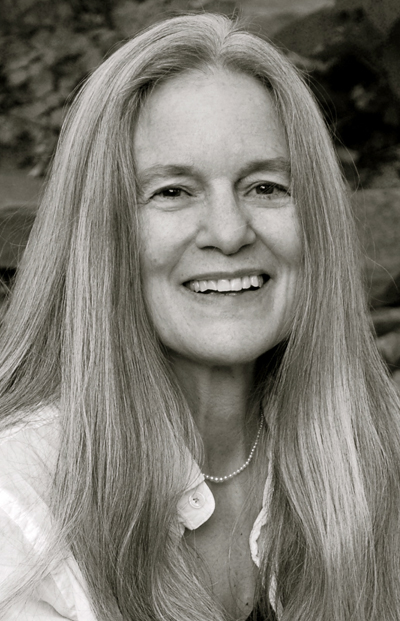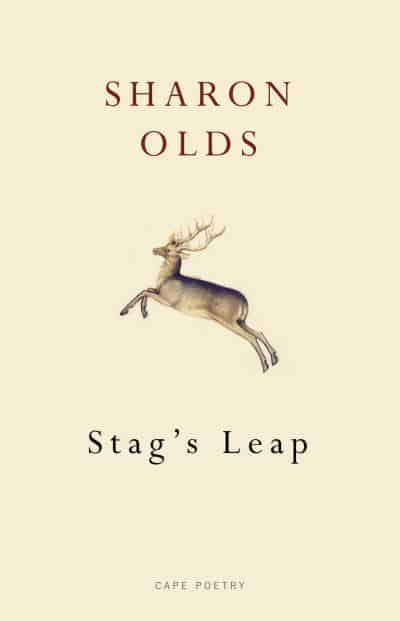

Sharon Olds has a long history with the T. S. Eliot Prize, having been shortlisted for the inaugural prize in 1993 for The Father, and shortlisted twice more, in 2009 and 2019. She won the the Prize in 2012 with Stag’s Leap (Cape Poetry), a collection Carol Ann Duffy, Chair of a panel of judges that also included Michael Longley and David Morley, hailed as a ‘tremendous book of grace and gallantry, which crowns the career of a world-class poet’.
What do you remember most about your Eliot experiences, we asked Sharon. A lot! she responded.
I remember the plane trip from J.F.K. to Heathrow (in January 2013) – the extraordinarily long way from the U.S. to the home of one of our father tongues [The King’s English (H. W. & F. G. Fowler, 1931)] – so many colours of water and foam, a few ships, icebergs, clouds. (My poem ‘Approaching Godthåb’, in Stag’s Leap, might have been written during my transatlantic pilgrimage to or from the ceremony for the inaugural Eliot – to which I went, stunned and grateful and anxious, with my shortlisted book The Father.) (The poems in Stag’s Leap were written mostly in 1997 and 1998; I delayed the publication of the book in order to spare my grown children the simultaneous experience of the sudden (-seeming) divorce and the publication of the book which incarnated it – incarcerated? incarnadined? Or not enough blood?)
Next, I remember the wit and subtlety of my fellowe/fellow poets, my pleasure in the daring of their humour, the bite of it (compared to N.Y.C. humor) – the smartness and sometime bitterness of it. (The intelligence and accuracy. The resonance. The political and the linguistical at the same time – Simon Armitage comes to mind! The sheer and the opaque pleasure of his wit.) And it was the first time I heard that if a Brit heard a Brit speak, the hearer knew where the speaker was from – in terms of class as well as topography. I was in (not in) a very different poetry family while there. And I had my Field Guide to the Birds of Britain and Europe, and would go lurking in parks near the hotel, in search of any sign of a bunting, chaffinch, brambling, siskin, bullfinch, or carrion crow.
The public rooms of our performances and celebrations were so impressive as to be scary (imperial, like Boston and D.C., only older) – giant silk rugs of gory hunting scenes on the walls! I was grateful and awed to be there. Dorothy, yr not in Berkeley 5, California, anymore. When it was my turn to read from Stag’s Leap, my shortlisted book, I read ‘Known to Be Left’ and ‘Poem for the Breasts’ – then had a chance to talk a little with Patience Agbabi, Sean Borodale and Paul Farley.
My beloved partner (Carl Michael Wallman, 1944–2020) was a profound and hilarious supporter of my ‘divorce book’; after the announcement was made at the Eliot ceremony, I was able to remain calmish and dignifiedish until my friend and editor, Robin Robertson, put in a transatlantic call for me to Graylag, Carl’s nature preserve in New Hampshire (Carl was a retired farmer).
It’s difficult to convey the amount of hope (to regard oneself as seen as maybe good enough) which one receives from such an honour. It was a great pleasure to meet Jacob Polley, and wonderful to see and hear Kathleen Jamie again. And what I remember maybe best is that I had somehow boarded the eastbound plane with no passport. A few days later, having visited the cement bunker of the U.S. Embassy, I had gotten a new passport (and someone having sent me the passport I left behind) I took my westbound passage with two passports – one hidden one not – an official having said to me, Don’t show these both to the same officer.
Sharon Olds was born in San Francisco and educated at Stanford University and Columbia University. She is the winner of many awards and honours, including both the Pulitzer Prize and the T. S. Eliot Prize. Her most recent collection, Balladz, was published by Cape Poetry in 2023. Olds teaches on the Graduate Creative Writing Program at New York University and helped to found the N.Y.U. outreach programs, among them the writing workshop for residents of Isadore Rosenfield Goldwater Hospital on Roosevelt Island, and for the veterans of the Iraq and Afghanistan wars. (Sharon Olds photo © Brett Hall Jones.)
ABOUT THE T. S. ELIOT PRIZE
The T. S. Eliot Prize celebrates its 30th anniversary in 2023. Awarded annually to the best new poetry collection published in the UK and Ireland, the Prize was founded by the Poetry Book Society in 1993 to celebrate the PBS’s 40th birthday and to honour its founding poet. It has been run by The T. S. Eliot Foundation since 2016. For more on the history of the Prize, visit tseliot.com/prize
The judges of the T. S. Eliot Prize 2023 are Paul Muldoon (Chair), Sasha Dugdale and Denise Saul. The 2023 shortlist will be announced in September and the Shortlist Readings will be held on 14 January 2024 at the Southbank Centre’s Royal Festival Hall; tickets will go on sale later this year. The winner of the 2023 Prize will be announced at the Award Ceremony on 15 January 2024.
Sign up to the T. S. Eliot Prize e-newsletter for regular updates about the award. It includes poems and specially commissioned video readings by our shortlisted poets, plus interviews, biographical information, reviews, Readers’ Notes, and news and offers from across the poetry world.


